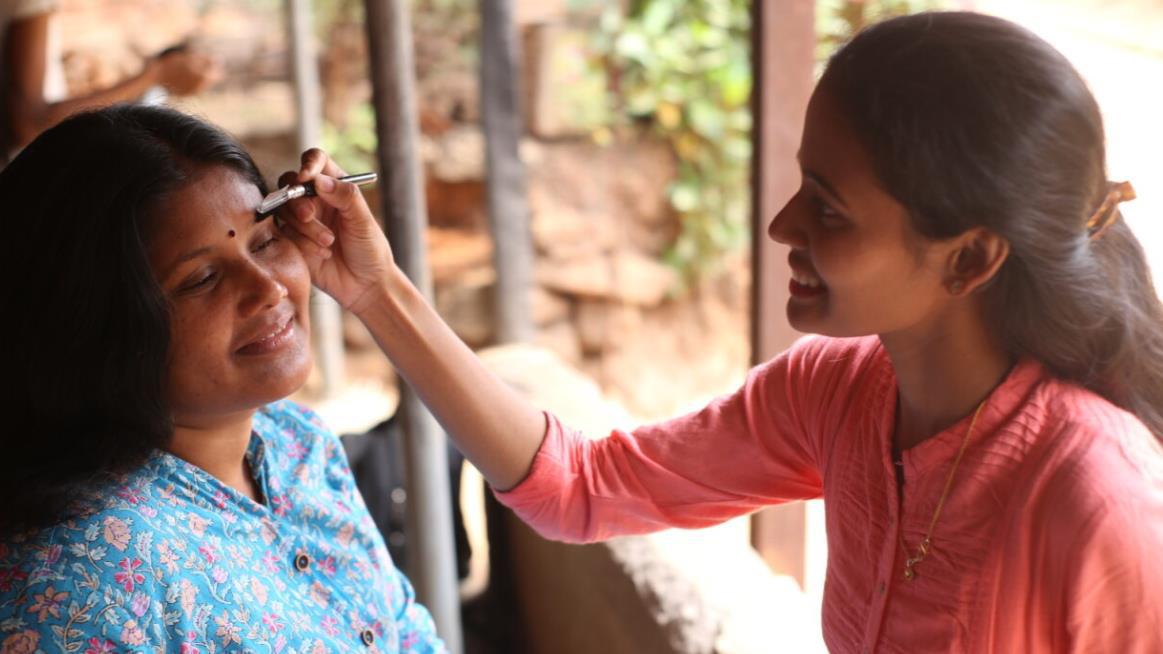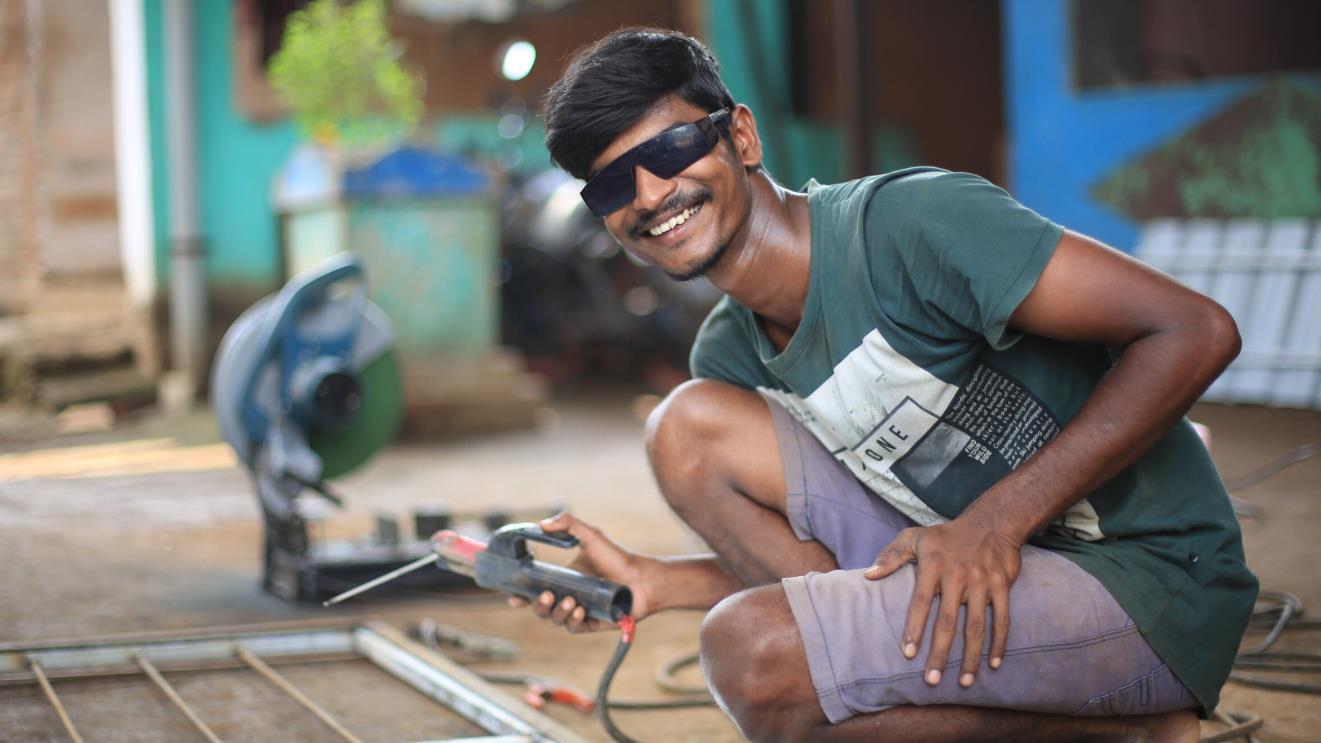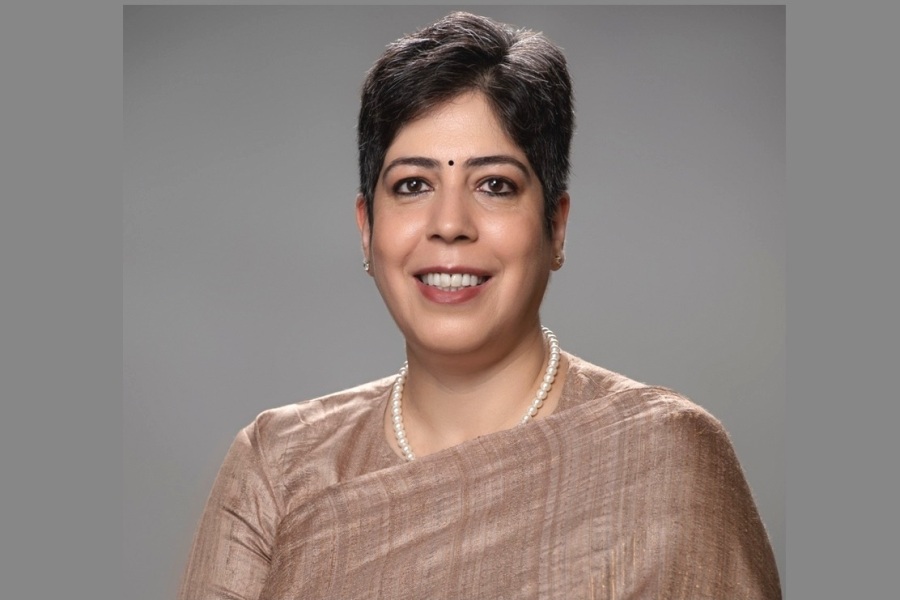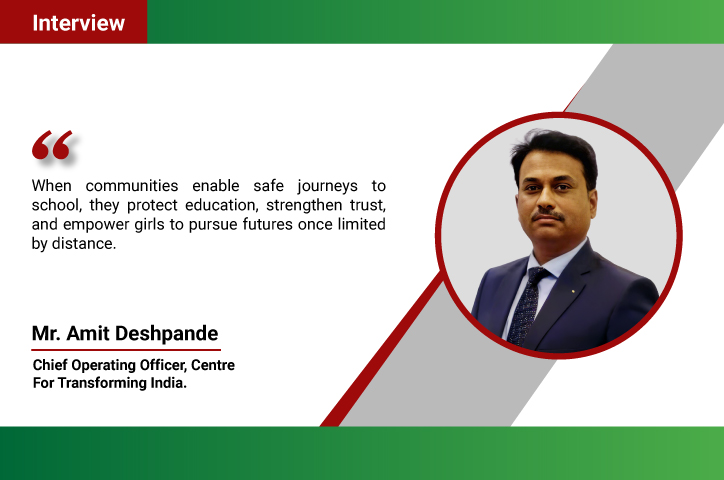In a bid to strengthen economic resilience and foster self-reliance in rural India, Flipkart Foundation’s ‘Rural Prosperity’ initiative is making waves. Spearheaded in collaboration with Swades Foundation, this transformative program is equipping rural youth in Maharashtra’s Raigad district with market-relevant vocational skills like masonry, beauty services, and mobile repair.
In this exclusive interview, Puja Trisal, Director of Flipkart Foundation, sheds light on the program’s mission, phases, and long-term impact. From addressing social inclusion to ensuring sustained employment support, she highlights how this initiative is building sustainable livelihoods while advancing economic and social equity.
As the Flipkart Foundation charts its path towards scaling up these efforts across geographies, Trisal also reflects on her personal commitment to empowering underserved communities and fostering balanced, community-driven growth in rural India.
Scroll down to explore how rural skill development is transforming lives and communities:
Q. What are the primary objectives of the 'Rural Prosperity' initiative, and how does it align with Flipkart Foundation's broader mission?
A. Our 'Rural Prosperity: Empowering Rural Youth through Targeted Skill Development for Sustainable Incomes' initiative in partnership with Swades Foundation aims to strengthen economic resilience in rural India. Through this project, we’re equipping 200 young people in Raigad district, Maharashtra, with specialized vocational skills that directly enhance their income prospects. This program is tailored to youth aged 18 to 35, with select self-employment courses, such as masonry, painting, and beauty services among others. Our goal is to improve employability, impacting approximately 860 lives.
This initiative aligns closely with Flipkart Foundation’s mission to drive inclusive development, fostering self-sufficiency and enabling youth to build sustainable futures within their communities. By focusing on market-relevant skills, we are creating stable, local economies, contributing to a more equitable and prosperous future for all.
Q. Could you elaborate on the specific vocational skills being offered to the participants? How were these skills selected, and how do they align with current market demands?
 A. In partnership with Swades Foundation, we are providing training in skills that have high demand in the job market and are relevant to local needs, such as masonry, plumbing, electrical work, welding, decorative painting, beauty therapy, and mobile repair. These skills were selected based on community needs assessments conducted by Swades Foundation, which involved input from local leaders, youth, and families. Our aim is to enable participants to transition from unskilled daily wage work to skilled employment, opening new career pathways that can transform their lives. By focusing on these practical skills, the program not only enhances employability but also fosters confidence, a sense of purpose, and personal growth among youth within their communities.
A. In partnership with Swades Foundation, we are providing training in skills that have high demand in the job market and are relevant to local needs, such as masonry, plumbing, electrical work, welding, decorative painting, beauty therapy, and mobile repair. These skills were selected based on community needs assessments conducted by Swades Foundation, which involved input from local leaders, youth, and families. Our aim is to enable participants to transition from unskilled daily wage work to skilled employment, opening new career pathways that can transform their lives. By focusing on these practical skills, the program not only enhances employability but also fosters confidence, a sense of purpose, and personal growth among youth within their communities.
Q. The program includes several phases, from mobilization to ongoing tracking of employment outcomes. Can you walk us through how these phases will be implemented and monitored for effectiveness?
A. Our initiative’s success hinges on effective community engagement, which Swades Foundation facilitates through Village Development Committees (VDCs). These committees, representing diverse community voices, conduct Participatory Rural Appraisals (PRAs) to identify in-demand skills. Once the relevant training themes/batches are approved by Swades’ team, participants undergo structured training that culminates in certification.
Post-training, youth are encouraged to pursue self-employment or skilled job opportunities, supported by ongoing assistance to reinforce their confidence. To ensure program effectiveness, Swades conducts semi-annual reviews and annual audits that assess impact and outcomes, allowing to refine and adapt the training based on evolving community needs.
Q. Given the success of this initiative, are there plans to scale it up or replicate it in other regions? What factors would influence this decision?
A. At Flipkart Foundation, we believe in the power of skill development to create sustainable livelihoods. The initial success of this initiative has opened the door for expansion to other regions where we see potential for meaningful impact. Our decision to replicate this model in new regions considers factors such as local skill demands and economic opportunities, aiming to drive employability and self-reliance. By evaluating the Social Return on Investment (SROI) in each instance, we prioritize programs with the potential to make lasting, transformative changes within communities.
Q. How does the partnership with Swades Foundation enhance the program? What unique contributions does Swades bring to this initiative?
A. Swades Foundation’s local expertise and deep-rooted community connections are invaluable to the success of this project. Their involvement ensures that the initiative is tailored to the unique needs of each community, as Swades actively engages local stakeholders at every stage, from mobilizing youth to monitoring progress. A unique contribution from Swades is their inclusion of financial literacy in training, which helps participants make sound economic choices. This holistic approach has already yielded impressive results, generating an additional income for rural households.
Q. After the training program concludes, what kind of ongoing support or follow-up will be provided to the participants to ensure they can successfully transition into employment or self-employment?
 A. The approach to this initiative is rooted in a long-term commitment to each participant’s success, extending well beyond the training phase. Every beneficiary of this initiative is assigned a unique ID, allowing them to carefully monitor and support their progress as they transition from training to either employment or self-employment. The project design recognizes that true, transformative impact doesn’t stop at skill acquisition; it’s fully realized when individuals feel confident and supported as they step into new roles, apply their skills, and build sustainable livelihoods. One of the ways Swades ensures this transition is smooth and meaningful is through a structured, year-long follow-up process. A month after placement, Swades collects data on their employment, and from there, maintains ongoing communication to assess retention, provide guidance, and offer support as needed.
A. The approach to this initiative is rooted in a long-term commitment to each participant’s success, extending well beyond the training phase. Every beneficiary of this initiative is assigned a unique ID, allowing them to carefully monitor and support their progress as they transition from training to either employment or self-employment. The project design recognizes that true, transformative impact doesn’t stop at skill acquisition; it’s fully realized when individuals feel confident and supported as they step into new roles, apply their skills, and build sustainable livelihoods. One of the ways Swades ensures this transition is smooth and meaningful is through a structured, year-long follow-up process. A month after placement, Swades collects data on their employment, and from there, maintains ongoing communication to assess retention, provide guidance, and offer support as needed.
Q. The initiative emphasizes advancing social inclusion. What strategies are in place to ensure marginalized groups within the community have equal access to the training opportunities?
A. Social inclusion is foundational to our initiative. To make training accessible, Swades has developed a structured fee contribution model based on household income, minimizing financial barriers for marginalized communities. For instance, households with annual incomes below Rs 50,000 contribute a nominal fee, while broader community members contribute a higher but manageable amount. This tiered approach aims to eliminate economic obstacles, ensuring equal access for all, irrespective of gender, caste, or background.
Q. Looking ahead, what are the future goals for the Flipkart Foundation in relation to skill development and rural empowerment initiatives? How do you plan to continue supporting these communities?
A. Looking forward, Flipkart Foundation remains focused on rural development as one of the key drivers of sustainable growth. In addition to our current skill programs, we are also supporting rural women artisans in West Bengal with training in entrepreneurship, enabling them to manage their own small enterprises. As we expand, we aim to deepen our impact by exploring new partnerships and approaches that foster self-sufficiency in India’s rural communities.
Q. Finally, as the Director of Flipkart Foundation, what personal motivations or experiences drive your commitment to initiatives like 'Rural Prosperity' that aim to empower youth in underserved communities?
A. Having grown up in a small town, I understand how limited local opportunities can disrupt lives, often forcing young people to migrate in search of stability and growth. This personal insight drives my commitment to initiatives like this one, which are designed to bridge this gap by creating sustainable livelihoods within these communities. The goal is not only to provide employment but to cultivate a sense of purpose and self-belief among young people - so they feel empowered to build their futures right where they are, contributing to the growth of their hometowns.
With a significant portion of India’s youth residing in rural areas, it is important we invest in their potential and give them the tools to succeed locally. For me, this work is about more than economic support; it’s about transforming community ecosystems. By strengthening rural economies and keeping talent anchored in their own regions, we’re laying the foundation for resilient communities and a more balanced growth story for India.





 A. In partnership with Swades Foundation, we are providing training in skills that have high demand in the job market and are relevant to local needs, such as masonry, plumbing, electrical work, welding, decorative painting, beauty therapy, and mobile repair. These skills were selected based on community needs assessments conducted by Swades Foundation, which involved input from local leaders, youth, and families. Our aim is to enable participants to transition from unskilled daily wage work to skilled employment, opening new career pathways that can transform their lives. By focusing on these practical skills, the program not only enhances employability but also fosters confidence, a sense of purpose, and personal growth among youth within their communities.
A. In partnership with Swades Foundation, we are providing training in skills that have high demand in the job market and are relevant to local needs, such as masonry, plumbing, electrical work, welding, decorative painting, beauty therapy, and mobile repair. These skills were selected based on community needs assessments conducted by Swades Foundation, which involved input from local leaders, youth, and families. Our aim is to enable participants to transition from unskilled daily wage work to skilled employment, opening new career pathways that can transform their lives. By focusing on these practical skills, the program not only enhances employability but also fosters confidence, a sense of purpose, and personal growth among youth within their communities. A. The approach to this initiative is rooted in a long-term commitment to each participant’s success, extending well beyond the training phase. Every beneficiary of this initiative is assigned a unique ID, allowing them to carefully monitor and support their progress as they transition from training to either employment or self-employment. The project design recognizes that true, transformative impact doesn’t stop at skill acquisition; it’s fully realized when individuals feel confident and supported as they step into new roles, apply their skills, and build sustainable livelihoods. One of the ways Swades ensures this transition is smooth and meaningful is through a structured, year-long follow-up process. A month after placement, Swades collects data on their employment, and from there, maintains ongoing communication to assess retention, provide guidance, and offer support as needed.
A. The approach to this initiative is rooted in a long-term commitment to each participant’s success, extending well beyond the training phase. Every beneficiary of this initiative is assigned a unique ID, allowing them to carefully monitor and support their progress as they transition from training to either employment or self-employment. The project design recognizes that true, transformative impact doesn’t stop at skill acquisition; it’s fully realized when individuals feel confident and supported as they step into new roles, apply their skills, and build sustainable livelihoods. One of the ways Swades ensures this transition is smooth and meaningful is through a structured, year-long follow-up process. A month after placement, Swades collects data on their employment, and from there, maintains ongoing communication to assess retention, provide guidance, and offer support as needed.













